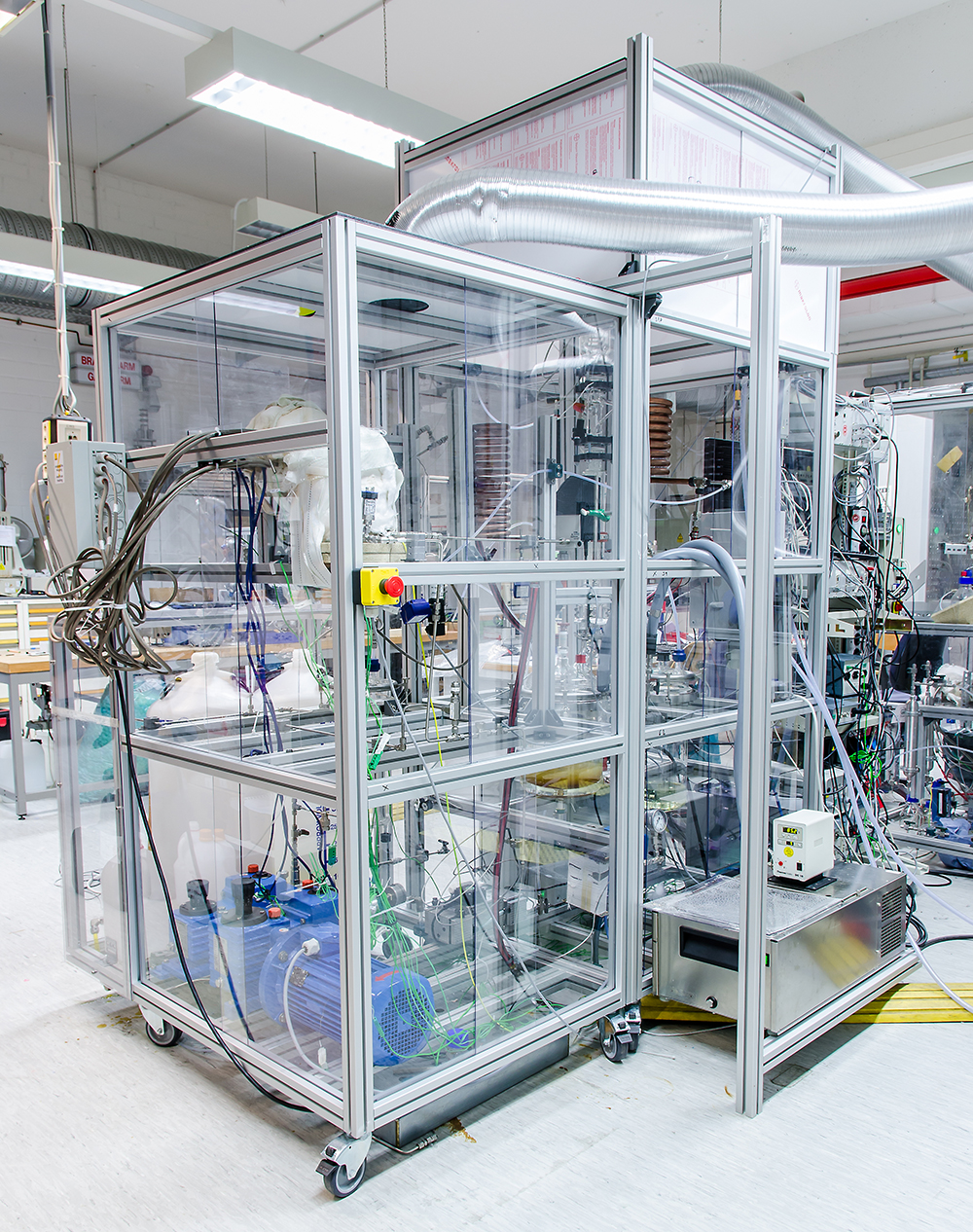Robust production of biofuels thanks to microreactors and supercritical process conditions
Nowadays, biodiesel is added in a quantity of 7 % to diesel fuel and 20 % to heating oil. In diesel fuel the formerly used sulfur compounds which worked also as lubricants are replaced by biofuel. This reduces the CO2 emission of the replaced fossil diesel by 70 %. The production of biodiesel from vegetable oils in the conventional homogeneously catalyzed process however has a number of disadvantages. These include the huge reactor dimensions, the vulnerability to free fatty acids and water, the low purity of the usable by-product glycerin (further utilization e.g. in cosmetics industry), the complicated wastewater treatment, large resulting wastewater quantities and some aspects of product separation.
„We show you how to transform your biological waste into valuable biofuels.“
We are able to realize a robust production of biodiesel even from waste material such as used cooking oil and also in the presence of free fatty acids. This gets feasible by using microstructured reactors in a heterogeneously catalyzed process conducted under supercritical conditions. Simultaneously, the generation of waste water as well as the energy consumption is minimized compared to the conventional process. Fields of application are decentralized plants which produce biodiesel from waste materials, flexibly and on-site, and without long transport routes.

 Fraunhofer Institute for Microengineering and Microsystems IMM
Fraunhofer Institute for Microengineering and Microsystems IMM